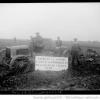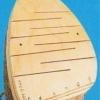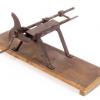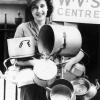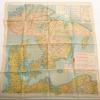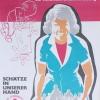Pans into Planes
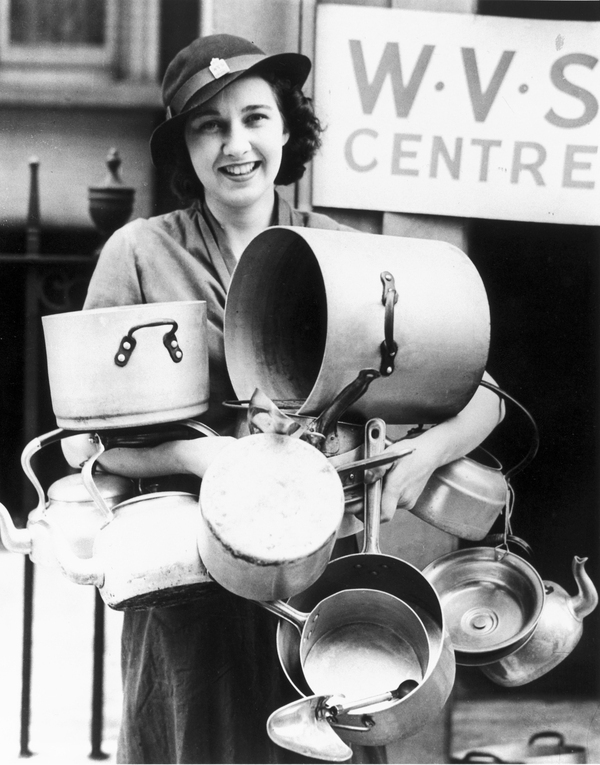
http://www.europeana.eu/portal/search?f%5BTYPE%5D%5B%5D=IMAGE&f%5BTYPE%5D%5B%5D=SOUND&f%5BTYPE%5D%5B%5D=VIDEO&page=4&q=recycling+AND+war&view=grid
Making fuel from old paper at home, or equipping cars with gas generators fueled by wood helped civilians to survive the hardships of war. However, that was not recycling as we know it today; instead, it was collecting old products in order to reprocess them and retrieve the raw material.
That form of recycling also played an important role during wartime. Just as copper was collected to manufacture shells during the First World War, the focus in the 1940s shifted to aluminum. Aluminum was essential in manufacturing aircraft, and because the supplies of bauxite (aluminum ore) in allied countries were limited, it was necessary to look for alternative resources.
In July 1940, Lord Beaverbrook, the minister of aircraft production, opened a huge reception depot on the outskirts of London as a collecting center for aluminum articles. In response to the "Pans into Planes" slogan, British women flooded the collecting centers all over the country with their arms full of aluminum pots and pans.
A similarly positive, albeit unexpected response came from another group of British citizens. Moving photos of piled artificial limbs that had been donated by disabled persons – especially veterans of the First World War – encouraged all Britons to make a sacrifice for the war effort.
 Previous Story
Next Story
Previous Story
Next Story
How to cite this page
Slawomir Lotysz, 'Pans into Planes', Inventing Europe, http://www.inventingeurope.eu/daily-lives/pans-into-planes
Sources
- Hardach, Karl. The Political Economy of Germany in the Twentieth Century. Berkeley: University of California Press, 1981.
- “Aluminium For Aircraft. An Appeal To Women.” The Times, July 10, 1940: 4.





